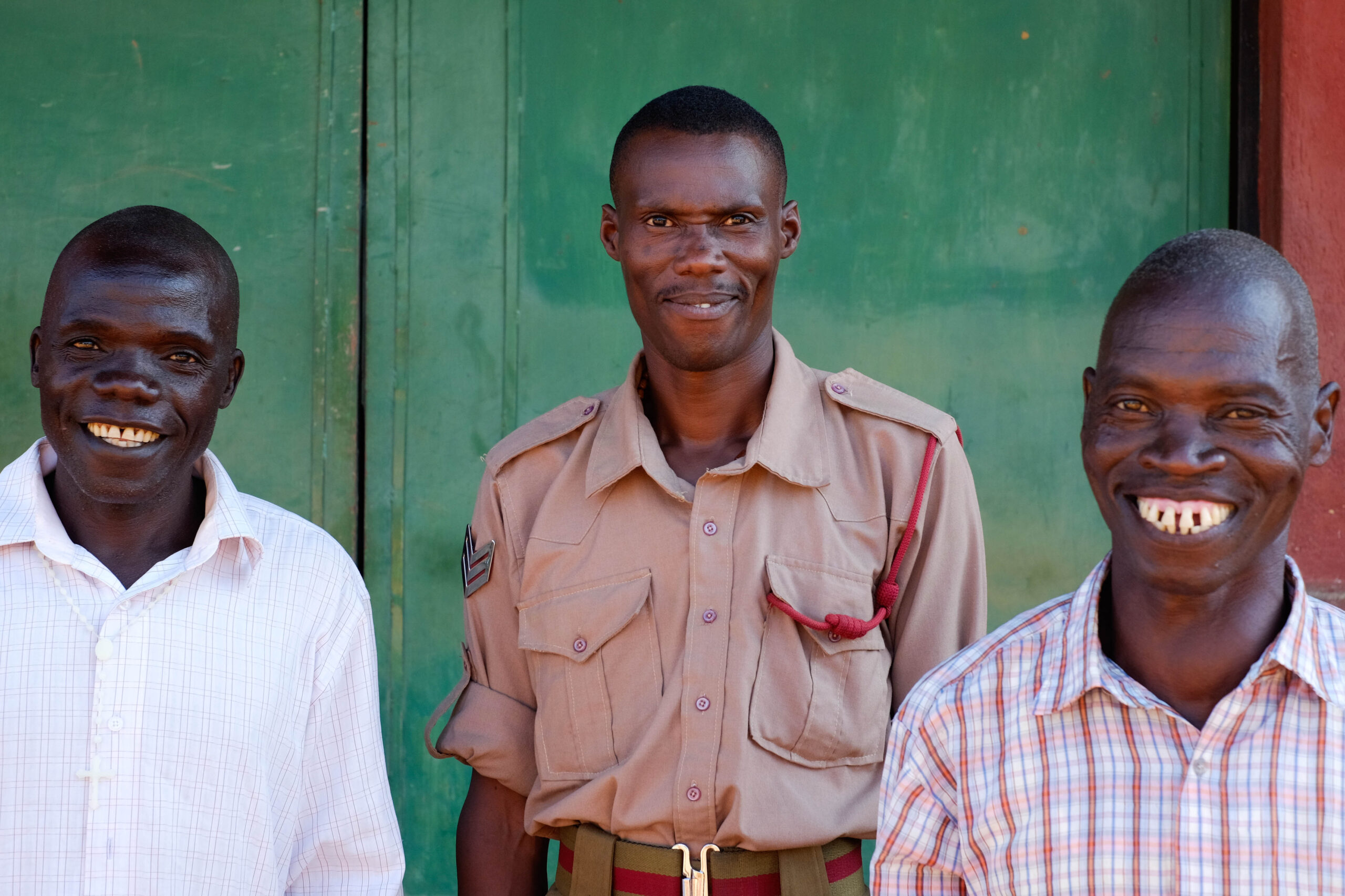Time to read - min

Former clients John Nthara and Jamu Banda on the day of their release in 2015. John and Jamu spent 21 years in a Malawian prison for a crime they did not commit. They are pictured with prison officer Andrew Dzinyemba, who supported their release.
2019 World Justice Challenge Winners Discuss the Impact of Twin Crises
Last year, the Cornell Center on the Death Penalty Worldwide won the World Justice Project’s 2019 World Justice Challenge for the Malawi Resentencing Project. On August 5, 2020, the World Justice Project invited representatives of the Malawi Resentencing Project and the other four winning projects to an online webinar to discuss their projects’ recent changes and challenges.
Sandra Babcock, the faculty director of the Cornell Center on the Death Penalty Worldwide, and Chimwemwe Chithope-Mwale, the Chief Legal Advocate and Head of the Malawi Legal Aid Office in Mzuzu, attended the webinar as representatives of the Malawi Resentencing Project. They explained the origins of the Resentencing Project, which Professor Babcock initiated in 2014 in response to the Malawian High Court’s 2007 decision to strike down the mandatory death penalty. The Resentencing Project brought together a coalition of public and private sector organizations, including Reprieve UK, Malawi Legal Aid, the Malawi Human Rights Commission and the Paralegal Advisory Services Institute. These organizations worked to obtain reduced sentences for death row prisoners who, under the Court’s 2007 decision, were entitled to present new evidence that courts had never before considered. The Resentencing Project’s tireless work saved hundreds of lives. Of the 169 prisoners who were eligible for a sentence rehearing, 156 received reduced sentences and 146 were released. None were resentenced to death. The Resentencing Project continues to work with local organizations to reintegrate the formally incarcerated people into their communities, and helps Malawian lawyers and paralegals provide quality legal representation to prisoners facing the death penalty. In 2017, the Project expanded into a wide-ranging Africa Appeals Project that replicates the Malawian collaborative model with partners in Tanzania and with the African Court on Human and Peoples’ Rights.
Representatives from three other winning projects also attended the online event and explained the background of their work. The Equality Effect’s 160 Girls Access to Justice Project aims, through police trainings, education, and legal advocacy, to protect children in Kenya from sexual assault and to attain justice for survivors. An organization in India, Nazdeek, helps women learn about their rights and seek redress for maternal and child health problems. The Instituto Socioambiental’s Riverine People and the Right to Full Reparation project helped implement an adequate reparation policy for traditional populations impacted by large infrastructure projects in Brazil. The fifth winning project, the Alaska Legal Services Corporation’s Partnering for Native Health project, delivers health-impacting civil legal assistance to economically vulnerable indigenous individuals. Representatives from The Alaska Legal Services Corporation prepared a podcast about how the coronavirus pandemic has affected indigenous communities around the world.
The webinar participants also discussed how their projects have been affected by the twin crises of the coronavirus pandemic and declining rule of law. In response to the pandemic, courts have closed down and prisons have closed off, leading to stagnant court proceedings and deepening isolation for prisoners. Additionally, governments around the world increasingly demonstrate a lack of respect for the rule of law. In Brazil, the new government supports unsustainable development projects, such as deforestation and mining in the Amazon. In Malawi, however, the rule of law triumphed when the Supreme Court nullified the 2019 elections, leading to new elections that ushered in the opposition party.
Representatives at the webinar explained how they have modified their projects’ approaches and goals to adapt to these challenges. Several projects have embraced virtual alternatives to their regular programs. In Tanzanian prisons, for example, the Resentencing Project now informs prisoners of their rights through “info-comics,” which are also accessible to illiterate people. Additionally, the 160 Girls project has launched a virtual curriculum on young people’s rights and started printing a biweekly newsletter written by young people. The projects have also modified their activities to address the pandemic. The Resentencing Project is now seeking clemency for at-risk clients by strategically collaborating with the government. Nazdeek and Instituto Socioambiental have devoted themselves to providing accurate information about the coronavirus pandemic to the communities they work with, and are working to ensure that communities have access to adequate services such as food and water.
Near the end of the online discussion, audience members asked how they could support the four projects. Several of the representatives, including Professor Babcock and Mr. Chithope-Mwale, said that the public can support their projects by offering financial support and increasing awareness of the issues their projects address. Click here to support the Center’s work in these unprecedented times.